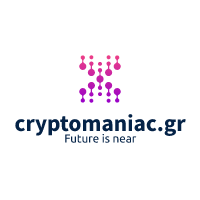Node Minning
DePIN (decentralized physical infrastructure networks) is a hot trend for 2024, running among the popular narratives in the crypto market. One of the industry's leading projects is Grass, a decentralized network for collecting and structuring public web data.
Grass recently made headlines with its airdrop, but faced backlash due to issues with the Phantom wallet. Here's a look at some promising projects, no one knows for sure which ones will reach their goal and which ones won't. But surely something that is completely free and can bring us profits deserves our attention and our support. But let's see them one by one
Rivalz offers a distinctive AI-powered platform that rewards users for sharing and processing data. The network motivates participants to operate nodes, earning points that can be exchanged for RIZ tokens. Click here to join Rivalz Network.
The testnet motivates users to contribute to the decentralized infrastructure of AI data applications, featuring a leaderboard that awards high rewards based on participation levels. To take part in the Rivalz airdrop, users are required to connect their wallets and fulfill social engagement tasks to accumulate points.
Dawn ( Please use our unique code to earn ongoing rewards - tgvs0hka )

Dawn is a decentralized communication protocol aimed at strengthening the Solana ecosystem, which is approaching its capacity limits. As a significant contributor to decentralized internet access, Dawn has raised $33 million in anticipation of its upcoming token generation event (TGE). Although the specifics of a possible airdrop are still uncertain, users can contribute to Dawn's development by participating in its community and testnet. Rewards are based on the length of connection time, number of referrals, social media engagement with Dawn, and participation as a validator node.
Kuzco

Kuzco is a decentralized GPU network tailored for efficient language model processing and supported by a16z. It is engineered for rapid AI computations and encourages users to participate by downloading its software, offering rewards for the contribution of idle computing power. The platform provides farming rewards, positioning it as an appealing choice for individuals looking to leverage Kuzco's processing capabilities.
Oasis AI transforms spoken language into polished text and incentivizes user engagement on its platform. Following a $2.8 million funding round, the initiative rewards users with points for utilizing its browser extension. Accumulating these points allows users to contribute to the platform's development and potentially profit from data monetization.
In addition, Oasis AI provides services like chat assistance, image generation, and speech-to-text conversion. Users can earn OAI tokens by connecting to the network and utilizing their GPU and CPU resources to support the models. Points farming has been available since May, and a recent Medium post suggests that Oasis AI airdrops are now open for claiming.
BlockMesh is designed for decentralized and secure communication, fostering ethical AI oversight. With an investment of $250,000, BlockMesh represents a confirmed crypto airdrop. It invites users to register and complete tasks via its extension, accruing points that can be exchanged for future token airdrops or rewards.
BlockMesh allows users to monetize their surplus internet bandwidth by contributing to a decentralized network. The airdrop is in its initial phase, with points being earned through various platform activities. These points may be instrumental in the future distribution of tokens, akin to other successful initiatives in this domain.
The airdrop program offers multiple avenues for earning, including sharing bandwidth via a Chrome extension, engaging on social media, and utilizing a referral system. By completing diverse tasks and actively participating in the network, users can increase their earning potential.
Gradient Please use our referral code 3U7LBV

Gradient, a project centered on Solana and supported by Sequoia and Multicoin Capital, streamlines computing resources via a liquid staking service, improving interoperability among blockchain networks. Users who join Gradient's compute network and download its farming extension can receive rewards that bolster AI and Web3 applications.
Although the airdrop is still unconfirmed with no token released, Gradient has rolled out a points campaign named "Sentry Node Open Beta." Participants can accumulate points by registering, following Gradient on X (previously known as Twitter), and installing the extension.
This initiative offers Web3 data-sharing capabilities, enabling users to monetize their data within Navigate's network. Supported by Kraken and boasting a user base of 5,000, Navigate is accessible to individuals who install its extension and start farming, thus providing a route to profit within its distinctive data ecosystem.
These cryptocurrency airdrops present viable alternatives to Grass. They exemplify the increasing use of Web3 technologies to forge decentralized financial opportunities that reward user engagement, data contribution, and computational input.
From operating a node to sharing data, or just interacting with an AI-driven platform, these initiatives allow the general public to participate in and gain financially from the burgeoning Web3 economy.






